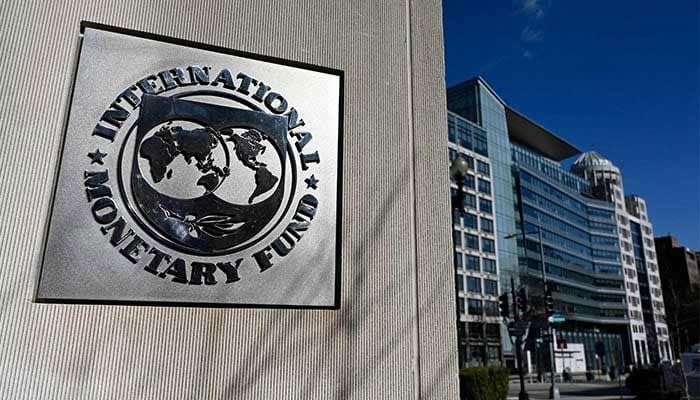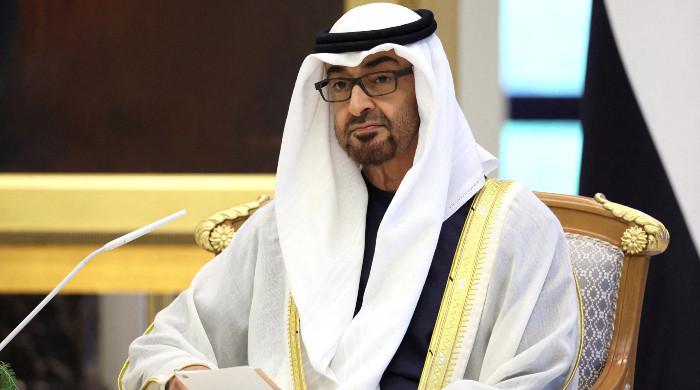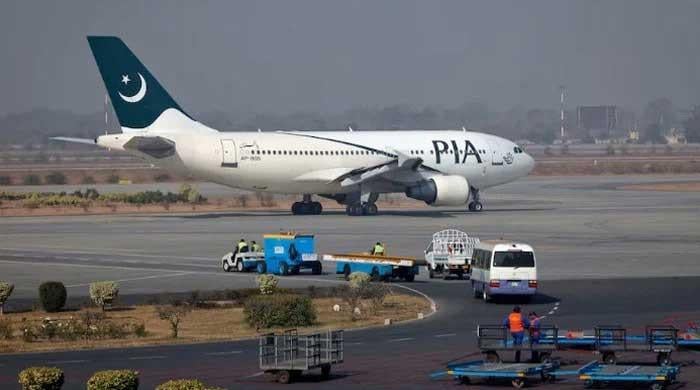Govt mulls requesting additional $2bn from IMF under climate financing
FinMin Aurangzeb says he will raise this issue at upcoming annual meeting of World Bank and IMF
October 22, 2024

- FinMin Aurangzeb to take part in IMF, WB annual meeting in US.
- Finance czar to take up issue of climate financing during moot.
- Islamabad is eyeing $1.5 to $2bn additional loans from lender.
ISLAMABAD: After succeeding in securing a much-needed fresh bailout from the International Monetary Fund (IMF), the incumbent government is mulling exploring the possibility of augmenting the lender’s $7 billion Extended Fund Facility (EFF) programme with the climate finance of $1.5 to $2 billion on the sidelines of the upcoming annual meeting of the IMF and the World Bank in Washington, The News reported on Tuesday.
"We will bring this up as a discussion point but it’s too early to talk about quantum," said Finance Minister Muhammad Aurangzeb who was on his way to the United States to attend the high-level huddle.
The publication added Islamabad may request the Fund to add climate finance to the existing EFF pushing the total size of the lender’s programme to $9 billion.
Islamabad had been working on implementing conditions deemed "strict" to complete the loan programme — agreed in July — and received the first tranche of $1.03 billion (SDR 760 million following the approval of the new loan programme by the IMF's Executive Board last month.
The 2024 Annual Meetings of IMF and World Bank Group will convene in Washington DC from October 21 to 26, bringing together influential leaders from government, business, international organisations, civil society, and academia.
FinMin Aurangzeb has already departed from the federal capital along with his entourage to participate in the upcoming annual meeting of the IMF/World Bank annual meeting.
With regards to the loan augmentation, there is one IMF instrument under the Resilience and Sustainability Facility (RSF) which provides affordable long-term financing to countries undertaking reforms to reduce risks to prospective balance of payments stability, including those related to climate change and pandemic preparedness.
By reducing prospective balance of payments risks, an RSF arrangement aims to contribute to longer-term Balance of Payment (BoP) stability.
In some cases, the RSF arrangements may also have an impact on short and medium-term BoP needs.
The IMF staff should illustrate in programme documentation, the risks to prospective BoP stability that may entail longer-term BoP financing needs associated with the relevant longer-term structural challenge.
These risks are a qualification criterion for an RSF arrangement (though they are not related to access levels, which are governed by separate criteria). Leveraging diagnostics and available modelling tools, staff should strive to illustrate the challenges to prospective BoP stability and substantiate the relevance of the proposed package of reforms to mitigating these prospective risks. Quantification, if feasible, is expected, but not required given inherent challenges.
Where relevant, any direct short to medium-term BoP financing needs arising from the implementation of RSF-supported reforms. Staff should provide precise estimates and include them in the fiscal or BoP frameworks.
Any positive impact on the BoP in the short-to-medium term from RSF-supported reforms should also be captured to the extent possible.
Under RSF, the IMF makes it mandatory that the debt must be assessed as sustainable over the medium term for staff to recommend and the Board to approve a new RSF request, augmentation of access, and completion of reviews under RSF arrangements.









